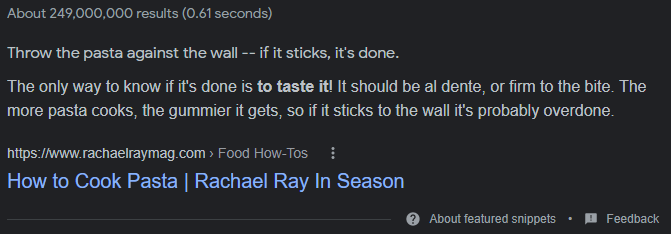Google algorithm updates are frequently rolled out to ensure users are shown the most relevant, accurate and safe search results for their queries. Each year, Google comes up with even more updates than the previous year, rolling out some with a big announcement and some on the down low.
By keeping up to date with these algorithm updates, big or small, you can maintain and even improve SEO ranking and understand why any changes in performance take place.
Our Top 4 Google Algorithm Updates
We will run through the five Google algorithm updates introduced in 2021, which would have the most impact. Lets list them down before deep diving into each update individually:
- Passage Ranking
- Mobile Indexing
- Page Experience
- Page Titles
1. Passage Ranking Update (Rolled out in February 2021)
The Google passage ranking update, as the phrase suggests, ranks specific passages and sections of content (paragraphs, sentences) from a page by using artificial intelligence. This means that these pieces of content can be shown on search results as featured snippets to give users more information before visiting a specific web page.
Example Screenshots


The example above shows the relevant piece of content from rachaelraymag.com for the user’s search query as a featured snippet. The user can easily get the information needed without actually visiting the web page.
Learnings & takeaways:
- Use long-tail keywords within your content
- Make sure the content on your site is relevant, high quality and detailed
- Ensure the content on your site is structured to make it easier for the Googlebot to index
2. Mobile-First Indexing Update (Rolled out in June 2021)
Since 2015, Google has been showing more interest in mobile friendliness being an important ranking factor for SEO. Mobile-first indexing was initially introduced in 2016, where the content indexed and crawled is ranked according to the mobile version of the respective content (mobile responsiveness played a major role for websites).
In mid 2019, mobile-first indexing became a default for any new website that was to be developed but with the new update that rolled out in June 2021, it is the default for all websites, old or new and is clearly one of the more important effective Google algorithm updates.
Learnings & takeaways:
- A responsive website is a must
- Use image compression for heavy image files
- Manually test responsive websites on mobiles (tablets and smartphones) before launching
Use Google’s Mobile-Friendly Test Tool to check if your website is mobile friendly. We can conduct a free SEO audit of your website to pinpoint what actions can be taken to improve the overall SEO friendliness.
3. Page Experience Update (Rolled out in June 2021)
Google introduced a set of metrics through the page experience update, called Core Web Vitals. Although this was rolled out after the mobile-first indexing update, they work hand in hand as they are both important for user experience. The Core Web Vitals are re-prioritized factors that affect the webpage experience of a user.
The 3 vitals are:
- Largest Contentful Paint (LCP) quantifies how fast the main content of a web page loads
- First Input Delay (FID) quantifies how quickly a webpage responds to a user’s first actions on the page
- Cumulative Layout Shift (CLS) quantifies how stable the entire layout is when a user interacts with the webpage (i.e. layout does not break or move when scrolling, components within the page stay intact throughout a user’s interaction)
Head to the Google Search Console to check the Page Speed Insights report or the Core Web Vitals report and find a range of recommendations and improvements you can make to your website to improve this metrics and overall website experience.
4. Page Title Update (Rolled out in August 2021)
The page title update is probably the more unwelcome update thus far. Google has been known to tweak the SERP page title to suit the search query, but the new update in August 2021 has been very drastic, with some websites seeing a dip in traffic by over 30%! Many major SEO agencies have written out regarding the page title update, saying that some titles rewritten by Google are detrimental to their SEO performance.
Since then Google has updated their new system of updating page titles on the SERP and have said that 87% of the webpages will retain their HTML title tag rather than the initial 80% when Google first announced that the new system will not adjust titles according to search queries but to showcase the entire web page in a more informative manner. This isn’t being taken lightly by many SEOs because the original HTML title tag is being overwritten by H1 tags, image tags and even anchor text from pages. The story is continuing to grow, and you can stay updated here.

